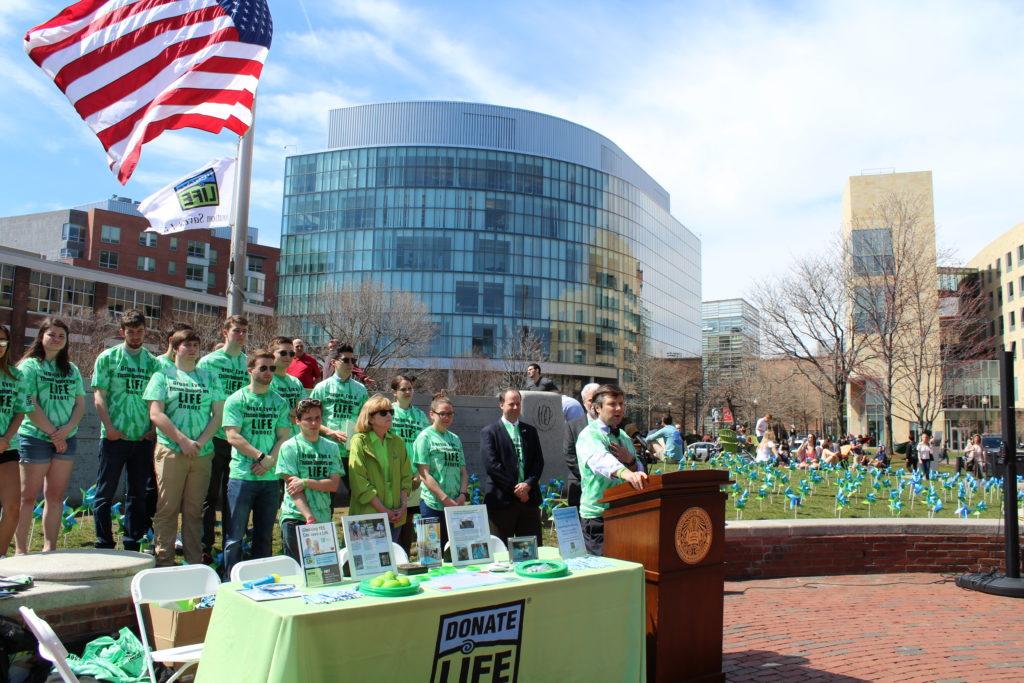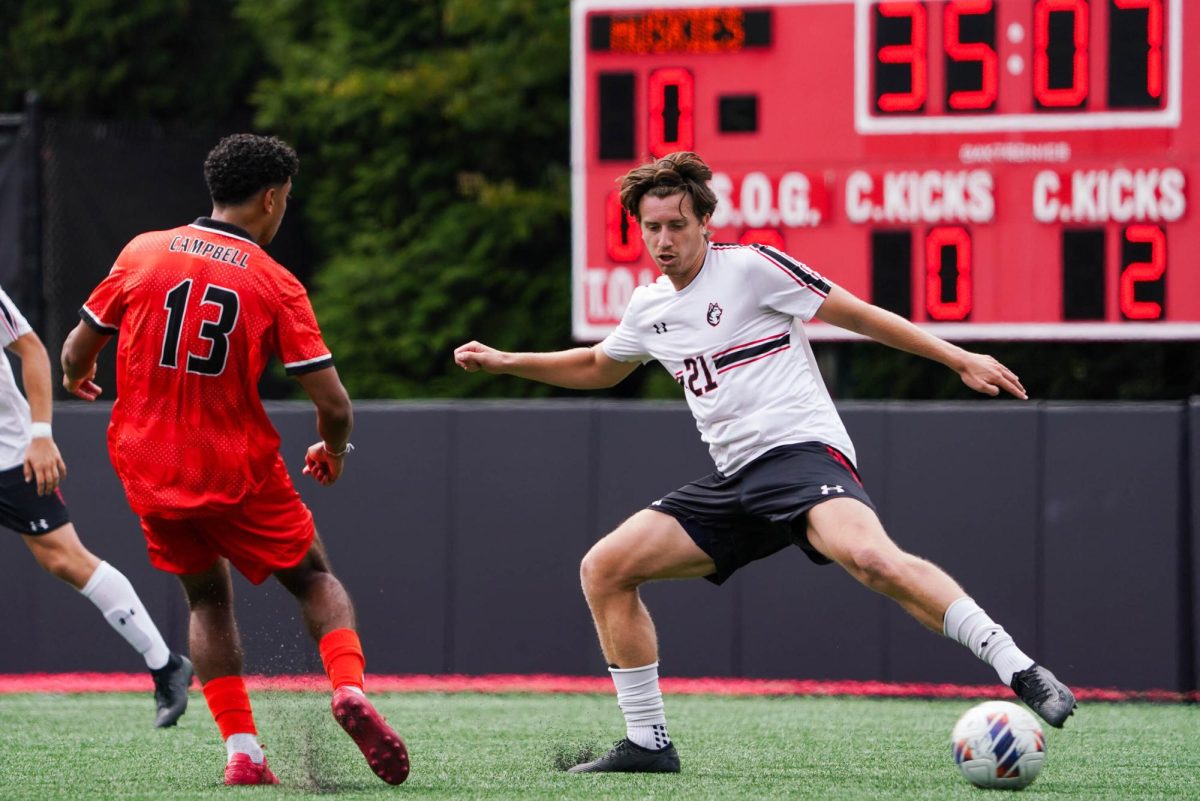Students raise awareness of organ donation
New England Donor Services spokesperson Matt Boger dispels common misconceptions about organ donation in Centennial Common Monday.
April 13, 2017
When senior behavioral neuroscience major Adam Bindelglass was 5 years old, he and his sister were in a severe car crash. Though he survived the crash, his 2-year-old sister did not. That day, Bindelglass’ sister became a heart and cornea donor.
A 5-year-old boy received Bindelglass’ sister’s heart via a transplant. The boy’s condition had grown so severe, Bindelglass said, that he soared to the top of the transplant priority list. The heart transplant saved the boy’s life, he said.
“It’s incredible feeling that a part of your sister – while it’s not necessarily her anymore, but a part of her – is living on in somebody and the organ is allowing him to have a better life and allowed him to participate like any other child would,” Bindelglass said.
In memory of his sister, Bindelglass has worked toward organ donation awareness at Northeastern. On Monday, Bindelglass gave a brief speech in Centennial Common about the importance of organ donation, alongside other students, faculty, transplant recipients and representatives from the New England Donor Services, which coordinates the recovery of donated organs to hospitals with patients in need of transplants. The group also raised a “Donate Life” flag, wore green t-shirts that said “Organ, Eye and Tissue Donors are Life Donors” and passed out free items including pens, balls and frisbees.
The gathering at Centennial Common was part of the 14th annual National Donate Life Month, which kicked off at the beginning of April and commemorates those who donated organs and tissues. By registering to be organ donors, individuals give permission that in the event they die, their organs can be extracted and given to those in need of transplants.
New England Donor Services spokesperson Matt Boger said there are more than 118,000 people waiting for a life-saving organ transplant. He spoke about common misconceptions about organ donation to encourage people in the common to register to be donors and spread awareness about the organ donation process.
Boger said one of the commonly circulated myths is that someone can be too old to be an organ and tissue donor. This, he said, is false because there are people of all ages who need organ transplants. He also said organ donations are very rare, and only 2 percent of deaths happen in a manner that enables the organs to be procured and transplanted.
“If you are in a coma, you are not being considered as an organ and tissue donor,” Boger said, dispelling another organ donation myth. “EMT, fire, police all do a good job of one thing: Taking you from an event to the hospital as quickly as possible. They have no say in the organ donation process. Emergency room doctors and nurses do a wonderful job of saving lives: They have no say in the organ and tissue donation process.”
Event organizers set up 300 pinwheels around Centennial to commemorate the 3,000 Massachusetts residents waiting on organ transplants.
“The pinwheel is symbolic of an instrument that turns obstacles into opportunities,” said Kayla Joyal, an event organizer and senior pharmacy major. “The pinwheel’s ability to capture and pass on energy parallels one’s potential to make life possible […] For recipients, donation can turn sickness and injury into a second chance at life. For donors, their decision to register can turn a sorrowful time into a source of comfort for family as a source of renewed life for others.”
Interim Dean of the School of Pharmacy David Zgarrick said educating others and correcting misconceptions is important when it comes to organ donation registration.
“Organ donation is literally one of the easiest things that someone can do, yet the rates are still much much much lower than what we’d like,” Zgarrick said. “To me, that means there’s a lot of work that we still have to do to educate others to be able to help them understand the truths as well as misconceptions about organ donation, and at the end of the day how important it is and how vital it is in health. This is one way that one can literally save a life.”
Although Bindelglass and Joyal are both graduating in May, they plan to have an official organ donation awareness club set up by the fall so that other students can continue the efforts they started. In addition to the Monday event, Bindelglass said the group has presented to different classes and clubs about organ donation and hopes to put on larger events in the future.
“The fact that they take the time on a beautiful day like today to educate the public to make them more aware of organ and tissue donation – and even for the people who are just walking by to be able to hear how easy it is and what they can do – I’m just so proud of our students for having a role in doing that,” Zgarrick said.







